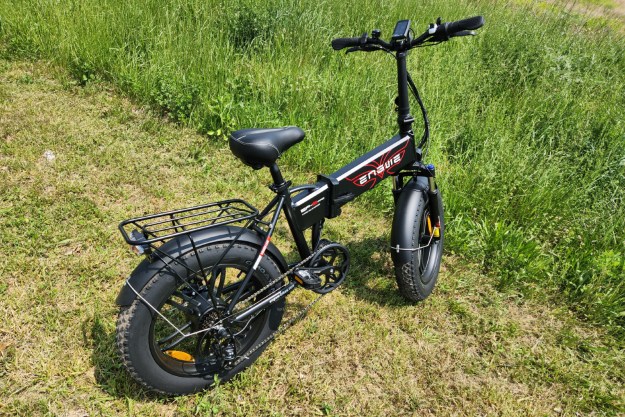Puma teased its self-lacing “Fi” sports shoe at the start of 2019, with a launch date targeted for spring 2020.
Between now and then, it’s working on tweaking the final design of the $330 footwear, and you can get involved.
The sportswear company is looking for volunteers to try out the shoes and offer feedback over the coming months so that it can build the best possible sneaker before it hits the market.
To have a chance of taking part, you need to be aged 18 or over and live in the United States, United Kingdom, Germany, Spain, Denmark, Sweden, Norway, Turkey, Japan, Hong Kong, or India.
You can sign up on Puma’s website or through its Pumatrac app, available for both Android and iOS.
Short for “Fit Intelligence,” the current version of the Puma Fi features a built-in micromotor, which, when paired with the app, controls super-thin cables that tighten or loosen the shoe. You can also adjust the fit via an Apple Watch, or even by swiping a tiny touchpad on the top of the shoe itself.
The Fi has a “smart sensing capability” that learns the shape of your foot and adjusts the tightness to create a perfect fit, though if that changes at any point, you can use the app to fine-tune it until it feels just right. A mat enables wireless charging of the shoe, and if you’re outside when the juice goes, it’s possible to simply swap out the battery.
Puma doesn’t say how many volunteers it’s looking for, but if you’re interested in helping to shape a pair of high-tech shoes for a global market and you live in one of the listed locations, just fill out the form and see what happens.
Puma’s self-lacing shoe follows in the footsteps of Nike’s $350 Adapt BB footwear, which launched in February 2019. The Adapt BB got off to a rocky start, however, when a number of Android users complained that an app update prevented the shoes from pairing with Nike’s app, which controls the footwear’s tightening mechanism.
With that in mind, Puma will be keen to make the most of its beta program to ensure its Fi sneakers avoid a similar stumble.
Editors' Recommendations
- Mayflower Autonomous Ship is headed to sea to test its self-driving boat tech
- Waymo takes its self-driving cars to Florida for testing in heavy rain


